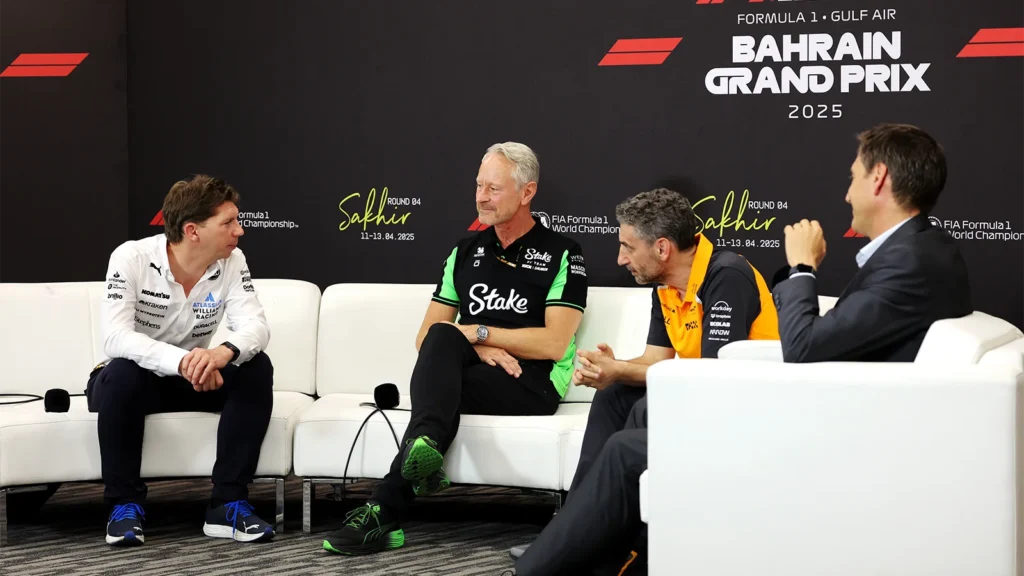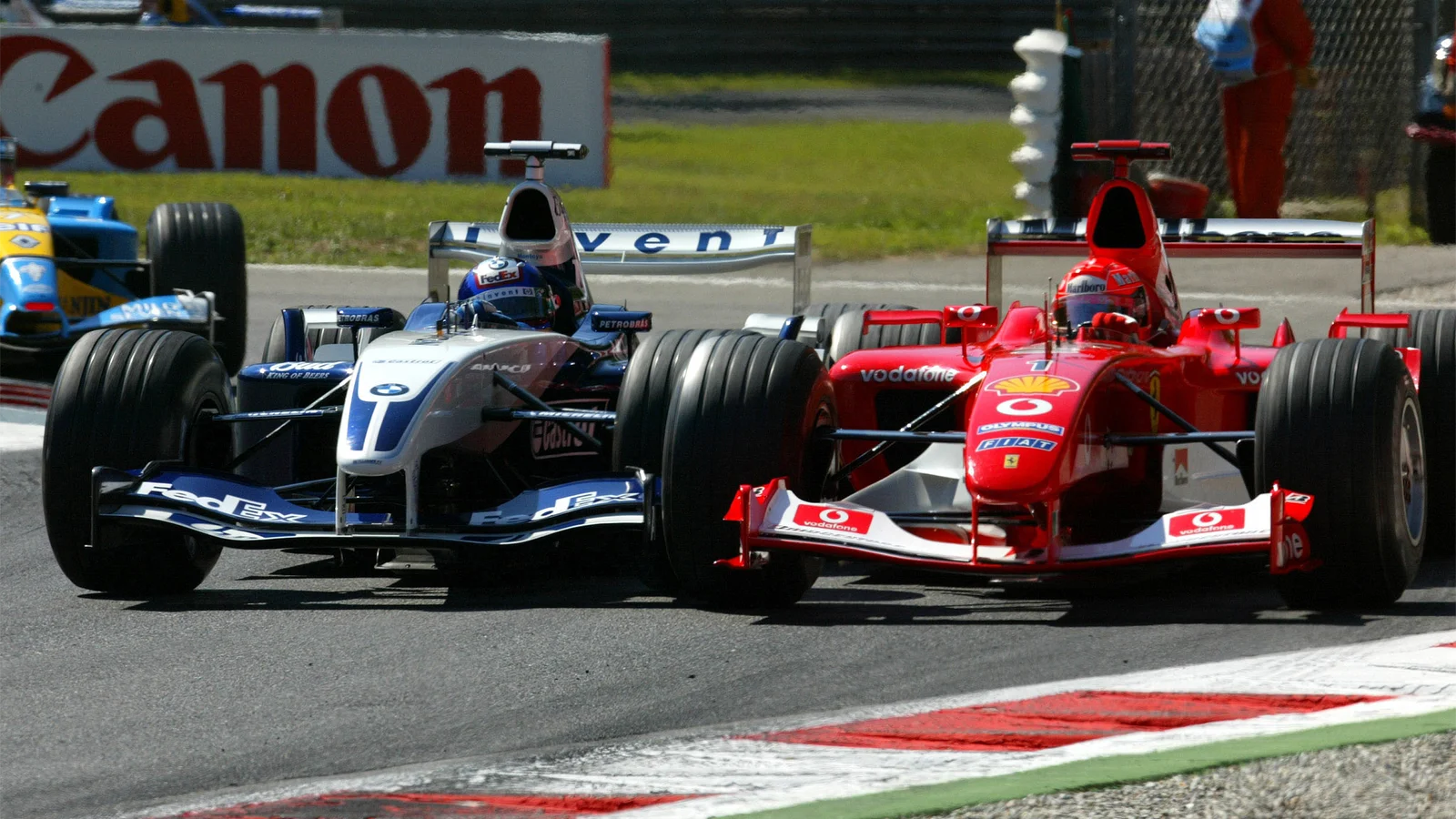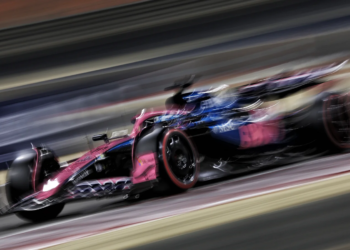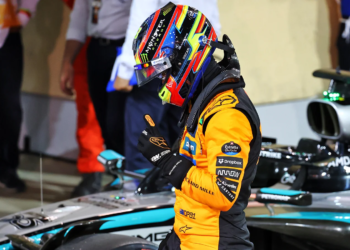Key Formula 1 stakeholders and team bosses look set to postpone plans to reintroduce V10 engines amid the desire to make a success of the 2026 regulations.
FIA president Mohammed proposed plans recently to reintroduce V10 engines with sustainable fuels to F1 in the next few years, to ease cost and performance concerns with the forthcoming 2026 engine formula.
Next year’s engines will see the 1.6 litre turbo retained, running on sustainable fuels but with a greater electrical element, comprising a 50/50 power split.
That has helped entice the likes of Audi and Honda to be OEMs, and it’s understood they, along with Mercedes, were against curtailing the new engine formula by 2028, which would be at least two years ahead of what was originally planned.
Ben Sulayem met with paddock representatives for F1’s OEMs on Friday in Bahrain, with a Cadillac representative also present.
Audi CEO Gernot Doellner, Ford’s Global Director of Performance Mark Rushbrook, and Mercedes Chairman Ole Kallenius joined proceedings via video call.
The meeting was put in place to discuss the validity of V10 engines in the future and easing concerns about the coming regulations.
It’s reported that the 2026 engine formula will continue as planned, but with measures to be discussed to mitigate costs, improve performance and address the ability for teams to recover lost ground.
Moreover, the idea of switching to a roaring V10 power unit is being put into the long-term frame of thinking, with a switch unlikely until at least 2029 and some form of electrification likely needed if such an engine formula is introduced, perhaps via the reintroduction of KERS.
“Obviously 2026 is absolutely fixed, but thinking a little further down the line, what is the right trajectory for Formula 1? 2028 is pretty much impossible,” Red Bull boss Christian Horner told Sky Sports F1.
“When you get a big regulation change, there is performance divergence and that is almost certain to happen next year,” Horner continued.
“One of the topics on the agenda this morning was how quickly can there be convergence.
“I think we all want to have close-quarters racing, not a repeat of what we had in 2014.”
F1 team bosses react to V10 engines discussion
Sitting in front of F1 media during a Friday press conference were McLaren Team Principal Andrea Stella, Williams boss James Vowles and new Sauber Team Principal Jonathan Wheatley.
All three were asked about the 2026 regulations and whether they held any concerns.
Stella was keen to stress that it’s up to the stakeholders in the sport to give these regulations a chance and engineer positively through any issues rather than looking to skip ahead.
“When we talk about the future regulations, we haven’t even started the 2026, and we are already talking about something else,” he began.
“I would like to invoke a sense of responsibility by all the stakeholders because we are here to protect the interests of the sport.
“We don’t want to undermine what could be actually successful regulations. They may need some tuning and adjustments, but that’s what we are here for.
“Let’s define exactly the technical challenge and we can resolve it. But let’s all work united collaboratively towards the interest of the sport, which comes when we have a good product.
“And I think we can have a good product, I think in ‘26, we just have to walk towards it.”

Wheatley makes Audi’s stance clear
Wheatley, as a spokesperson and leader of the Audi F1 project, made the German marque’s views on engine regulations clear.
“I understand a very open and productive and collaborative discussion today with all the major stakeholders [was held],” he said.
“From what I understand, it’s got the best interests of F1 at heart, and that was the basis of the entire conversation. The feedback I’ve had was very encouraging.
“Just talking about 2026, it’s very clear Audi’s position. The reason they got involved in the sport is the excitement around the three pillars that we see is really important.
“The first one being a highly efficient engine, the second one being an advanced hybrid system, and of course, sustainable fuels being the bedrock of that.”
There are also concerns that with 2026 potentially being an engine-dominated formula, racing could be negatively impacted.
Indeed, the aero regulations have been designed to compensate for energy conservation with the 2026 power units, but as Vowles revealed, simulations show that racing could improve.
Dirty air and following has reared its ugly head in a big way so far this season, Vowles believes that next year, this won’t be an issue.
“For us, the racing looks actually pretty good at the moment,” Vowels said.
“I think it would be pretty good from a spectator perspective.
“I think the wake is better. I think the following will be better. So I’m not overly concerned at the moment.”
In summary, as much as F1 purists would love to see V10 engines make a grand entrance back to the sport, it looks like such an occurrence won’t happen for a long while yet.
READ MORE – Zak Brown: F1 can’t ‘unwind what’s in place’ amid V10 engine reintroduction debate










Does the FIA/FOM have ANY idea how to make development/specification development decisions for immediate and future F1 in ANY technical fields??